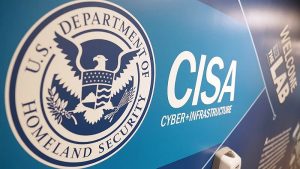Recognizing the struggles college students can face when trying to afford non-tuition costs like food, child care, and housing, the New Jersey Office of the Secretary of Higher Education (OSHE) has launched a free online navigation tool that will connect college students with a wide spectrum of basic needs resources.
In partnership with state and Federal leaders, Rhode Island College has launched the Institute for Cybersecurity and Emerging Technologies.
In a bid to strengthen government transparency and accountability, the South Carolina Revenue and Fiscal Affairs Office (RFA) has launched a new Education Funding Dashboard. The dashboard enables parents and taxpayers to easily see how each school district spends taxpayer dollars.
The Federal Communications Commission (FCC) has proposed allowing schools and libraries to apply for funding from the FCC’s E-Rate program for Wi-Fi hotspots and wireless internet access services that can be used off-premises.
The Software and Information Industry Association (SIIA), a software industry trade group, has released its Principles for the Future of AI in Education.
California’s Cradle-to-Career (C2C) Data System has begun integrating more than 1 billion data points, which the state calls a “pivotal phase in its effort to transform education and workforce development.”
West Virginia Gov. Jim Justice announced that the state has entered into a partnership with Tutor.com to provide online tutoring, test prep, and job support for West Virginia public library patrons across the state.
The University of Nebraska-Lincoln (UNL) has partnered with SkillStorm, a tech talent accelerator, with the aim of closing technology industry talent gaps across the Midwest.
Connecticut Gov. Ned Lamont confirmed that the U.S. Treasury Department has approved his administration’s plan to invest $70.9 million in Federal grant funding to upgrade network and cybersecurity infrastructure in the Connecticut Education Network (CEN), connect up to 170 community anchor organizations to CEN, and expand public Wi-Fi service.
The evolving cyber threat landscape makes it clear that organizations in the public and private sectors must be prepared to maintain operations and address new cyber threats and challenges as they arise – including schools that have unique security needs and considerations that require specific cybersecurity resources.













